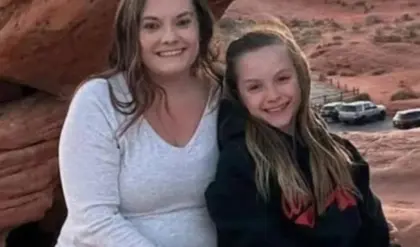The very nature of any kind of creative job is that you have to coast through real highs and real lows. In a vast industry united by financial instability, regular cuts and setbacks, media and artistic roles are rocky at best. Even the biggest names, and even in a place like Hollywood that is built on the back of art, have to face up to issues, whether it be strikes over pay or projects falling through at the last minute. That’s something that Jodie Foster knows well.
It would be easy to assume that Foster has floated through life with relative ease and comfort. She started acting as a tot, quickly getting picked up by agents and casting directors for more roles throughout her childhood and teens. Before she was an adult, she was her family’s breadwinner, bringing in a great salary for roles in films like Martin Scorsese’s Alice Doesn’t Live Here Anymore or Tom Sawyer.
But she wasn’t just good for a kid. Foster quickly proved she was great full stop. When she reunited with Scorsese for her somewhat controversial role in Taxi Driver, she broke into a whole new cinematic world as she demonstrated her ability to take on darker and more adult roles. That film taught her a lot about her job as she said it was “the first time anyone asked me to create a character that wasn’t myself. It was the first time I realised that acting wasn’t this hobby you just sort of did, but that there was actually some craft”.
The way that shifted her work ethic also helped solidify her career as she went on to have a golden run of more films like Bugsy Malone, Freaky Friday and onto adulthood roles like The Accused or Silence Of The Lambs. By all accounts, Foster has had an incredible and busy career, spanning all genres and working with some of the biggest directors around.
But that still doesn’t make her immune to letdowns. Her biggest disappointment came alongside her biggest desire: to direct. “I just didn’t know that actors were allowed to direct,” she said, recalling one day in her childhood when Bill Bixby was in charge of an episode. “My mind was completely blown. I thought, ‘That’s what I want to do someday.’” By the 2010s, she’d managed to make that happen and was mostly focused on directing when she got a major setback.
When it came to making her third directorial feature, The Beaver, Foster came face to face with the lows of the creative industry. She called the project “probably the biggest struggle of my professional career” as an issue of stardom got in her way.

Another issue in creative industries is that the person and their job are inseparable. We could donate all day over the question of whether the artist should be separated from the art, but in reality, and especially in acting, we know they are intrinsically linked. When it comes to films, even if fans decide to try and put the behaviours of a certain actor to one side for the sake of the film, the face on the screen is still of that person, and their behaviours will always be attached to that.
Foster more than found that out when her star, Mel Gibson, was convicted of battery by an ex-girlfriend, ending up caught in legal and well-publicised personal issues as the film started its release cycle. That was made even worse by the fact that he was playing an alcoholic caught up in family drama, tying the film too closely to Gibson’s real life to be able to separate the two. As a response, the studio cut a lot of the release budget, cut the plans short and essentially gave up on the project that seemed doomed.
“It was really hard,” Foster said. The fate of the film cut the highs and stunted her reward for her hard work, forcing her to reconsider the point of it all as she added, “I think you learn over the years that the reward of making movies is making a movie. It exists on a DVD. I can look at it and say, ‘This is the movie I was hoping to make,’ and that’s 10 points for me.”
“I think the worth of the movie doesn’t depend on how many people got to see it. I’ve made enough movies that no one got to see or barely came out,” she continued, trying to find a silver lining in what she called “a short, uninspired release.” But even with the most optimistic thinking, it still doesn’t completely erase the fact that her hard work on the film went largely unnoticed upon release, marred by public drama and buried by cuts. In a career with so many high points, this surely was one of Foster’s lowest.

